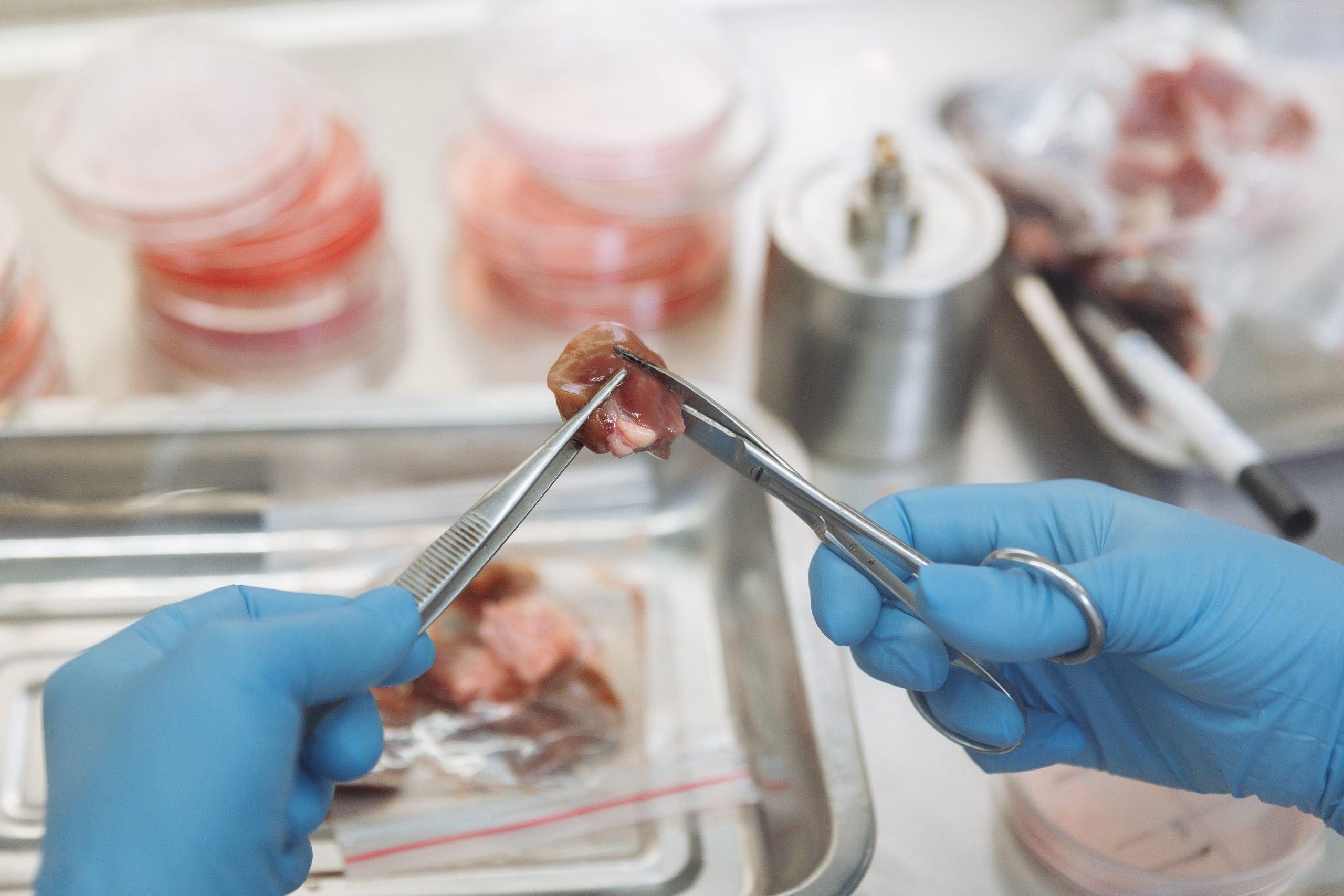Lab-grown meat has hit a possible roadblock in Florida as a bill has been introduced to ban its production and sale in the state. House Bill 1071 would suspend any Florida establishment’s restaurant or retail license for selling lab-grown meat. The legislation was sponsored by Florida Rep. Danny Alvarez, R-Hillsborough County, and would and make the cultivation or sale of lab-grown meat a second-degree misdemeanor.
For clarity, lab-grown or cultivated meat is not the same as plant-based meat, which is readily available for purchase in the U.S. Plant-based meat is as the name states—made from plant-based ingredients and contains no meat. Lab-grown meat on the other hand is made from animal cells—beef, chicken, pork and seafood—and is grown in a laboratory. Both products have been controversial topics in the agriculture industry.
In 2020, Singapore became the first country to approve the sale of lab-grown meat. In 2023, the U.S. Department of Agriculture granted approval to lab-grown meat produced by two companies: GOOD Meat and UPSIDE Foods. However, Florida is not the only place that has a beef with cultured meat. Italy has banned the production of lab-grown meat and tofu steak within its borders in order to protect the prosciutto industry as well as their agriculture industry as a whole.
“The world is not collapsing,” Alverez said. “What we are doing is putting the safety of Floridians first,” Alvarez. The federal government says it’s safe, but we’re asking ‘is it?’ It hasn’t even been a full year since they were allowed to hit the market. Florida is closed for experimentation on our citizens.”
Alvarez said the bill was proposed to protect the cattle industry in Florida and because he believes there are too many unknowns and lack of research on the lab-grown products.
“Right now, we don’t have the information for a consumer to make an educated, informed consensual decision,” Alvarez said. “Until we have long-term studies that tell me what lab-grown immortalized cells do to your body, I challenge you to put it in your child.”
To ban or not to ban
Some view lab-grown meat as an answer to world hunger for the future. Supporters of lab-grown meat say because cultivated meat is grown in a sterile environment, it is less likely to carry food borne illnesses as compared to conventional meat. Additionally, it only two to eight weeks to produce, depending on the type of meat. However, for it to solve world hunger, the cost of production would have to lower significantly. Currently sources indicate it costs between $17 to $23 to produce one pound of lab-grown meat, and that is before retail markups.
“The reality is not only should we be embracing new technologies and allowing this sector to have a footprint in Florida,” said Florida Rep. Anna Eskamani, D-Orange County. “But we also need to be proactive in addressing population growth and the fact that we don’t have enough meat to sustain the population in this state and in this country for decades to come and allowing there to be the production of alternative proteins is a good thing.”
Many consider banning lab-grown meat a way for China to gain even more strength in exporting power of lab-grown products. After this bill was introduced on Feb. 12, it was amended remove the ban on manufacturing the product in Florida. This will allow research to continue on lab-grown meat, which some believe could become a key player in food supply for the aerospace industry someday. No matter the outcome of the bill, agriculture has not heard the last from the cultured meat industry.
Lacey Vilhauer can be reached at 620-227-1871 or [email protected].



